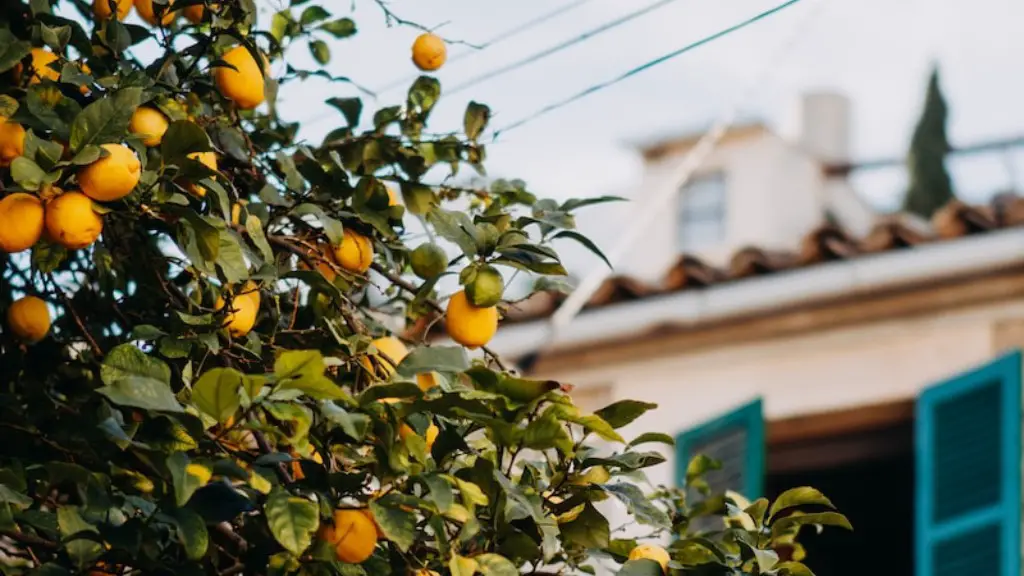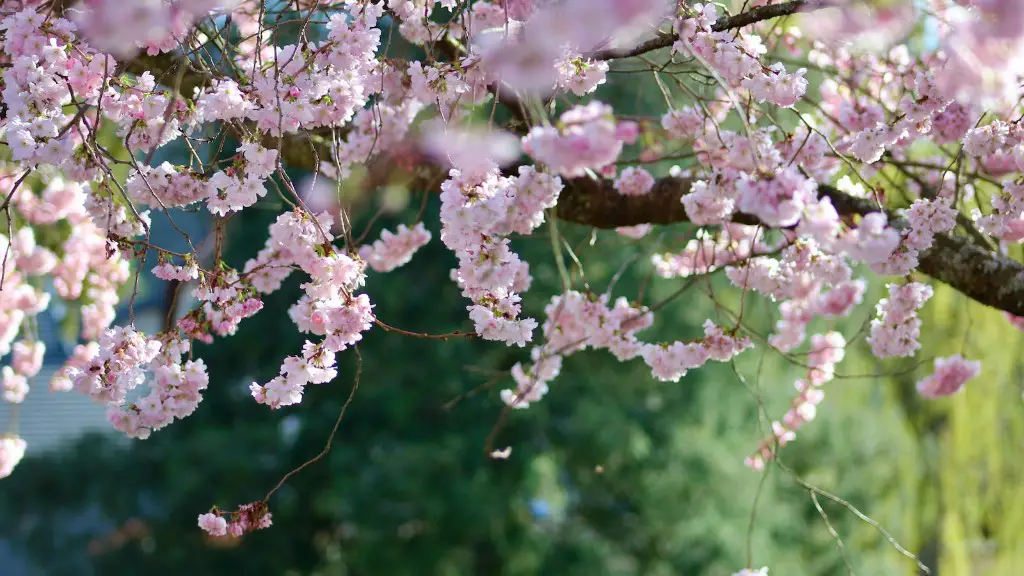Lemon trees go through cycles of periods of production and dormancy, but there are some strategies you can practice to ensure that your lemon tree bears as much fruit as possible. It is essential to pay close attention to the tree’s needs and make sure that optimal conditions are kept in order to maximize the potential of your tree. Here are some tips to help you make your lemon tree grow more fruit.
Fertilizing Lemon Trees
Fertilizing your lemon tree is important to promote strong growth and increase your tree’s fruit production. When you apply fertilizer to your lemon tree, it needs to be done every few months during its growing season. When you fertilize, use a balanced fertilizer to provide the tree with all the nutrients needed. When the tree is flowering, use a fertilizer that is higher in phosphorus. Also, consider adding a layer of compost or mulch to the soil every spring as this will help to feed the tree longer-term.
Watering Lemon Trees
Watering your tree is essential to promote healthy growth and increase the harvest. Make sure to check the soil regularly to assess the moisture levels. Most lemon trees need about 1 to 2 inches of water each week, so be mindful of the amount you’re providing for your tree. Applying water slowly and consistently is best, as this will provide a better soaking. If your region experiences prolonged dry periods, consider setting up a drip irrigation system to keep the soil sufficiently moist.
Selecting Optimal Locations
When selecting a location for your lemon tree, make sure to pick an area that provides plenty of sun. Lemon trees thrive in 8–10 hours of daily sunlight. Also, consider how much space the tree requires, as some can grow quite large. If you live in a colder climate, keep the tree away from any frost pockets or areas of extreme wind.
Pruning Lemon Trees
When it comes to pruning lemon trees, be sure to remove any dead, diseased or damaged branches. If your tree is producing an overabundance of lemons, consider removing some fruit, as this will help to promote a better harvest in the future. Always use a sterilized blade when pruning, as this will reduce the chances of spreading any diseases or infections. Don’t be afraid to try new pruning techniques, as this will open the tree up to more air and light.
Checking For Sign Of Pest and Disease
When it comes to growing lemon trees, one issue that needs to be managed is pest and disease management. Inspect the tree regularly for signs of any pests or diseases, such as rust, black spots, and curling leaves. If you notice any of these, take immediate action to treat the infestation. Some effective treatments include pruning the affected areas and spraying an insecticidal spray on the tree.
Protecting Your Lemon Tree
Protecting your lemon tree from extreme weather conditions is essential to encourage strong growth and a good yield. In the winter, consider enclosing the tree in a cold frame to shield it from any potential frost. Also, if you’re experiencing extreme heat in the summer, consider providing the tree with some shade to keep it cool during the hot days.
Adopting Bio-Organic Practices
Bio-organics practices are fundamental now when it comes to fruit-bearing trees. Try to limit the use of chemical fertilizers, pesticides, and fungicides, as this can be harmful to your tree. Consider opting for natural alternatives, such as plant-based compost and mulch. Also, ensure that the soil you’re using for your tree is natural and free from any harmful chemicals.
Improving Soil Biology
Improving soil biology is crucial for producing good yield and a strong root system. When preparing soil for your lemon tree, make sure to break it up and add in some organic matter. Consider using a soil conditioner to improve the essential nutrients in the soil and help your tree better absorb them. Then, keep the soil moist and adjust the acidity levels to maintain a good balance.
Encouraging Pollination
If your tree is not producing as much fruit as it should, consider encouraging pollination. To encourage pollination, you can use either bees or manual pollination. Honeybees are great for this purpose as they naturally carry pollen from flower to flower. Alternatively, you can also carry out manual pollination by gently brushing the pollen from flower to flower with a soft cloth.
Providing Essential Nutrients
Make sure your lemon tree gets all the essential nutrients it needs by testing the soil and applying the necessary minerals. If the soil’s pH is too acidic, add lime and if it is too alkaline, add sulfur. Additionally, consider adding in some organic matter to provide more minerals for the tree and to create more aerated soil. Doing this will encourage your tree to absorb the necessary nutrients more efficiently and help your lemon tree grow more fruit.
Managing Insects and Pests
Managing insects and pests is essential to a healthy lemon tree. Make sure to check your tree regularly for any signs of bugs or other critters. If you notice any issues, take swift action to treat the infestation. Use natural pesticides and repellents, rather than chemical treatments, as this is gentler for your tree and more environmentally conscious.
Fostering Healthy Roots
Having healthy and strong roots is key to a successful lemon tree. To keep roots healthy, consider removing any weeds that are growing near the tree as they can stunt the tree’s growth. Also, make sure to water the tree regularly and deeply, so the moisture can reach the deep areas of the root system. Finally, consider using a root booster to help the tree reach a deeper level into the soil.
Protecting Against Injury
When it comes to making your lemon tree grow more fruit, it is essential to protect it from any potential injuries. Make sure to keep the tree away from any harsh chemicals, as this can cause it harm. Also, consider providing protection from extreme temperatures, as this can potentially damage the foliage. If you are living in colder climates, consider wrapping the tree in burlap or setting up a wind barrier.

